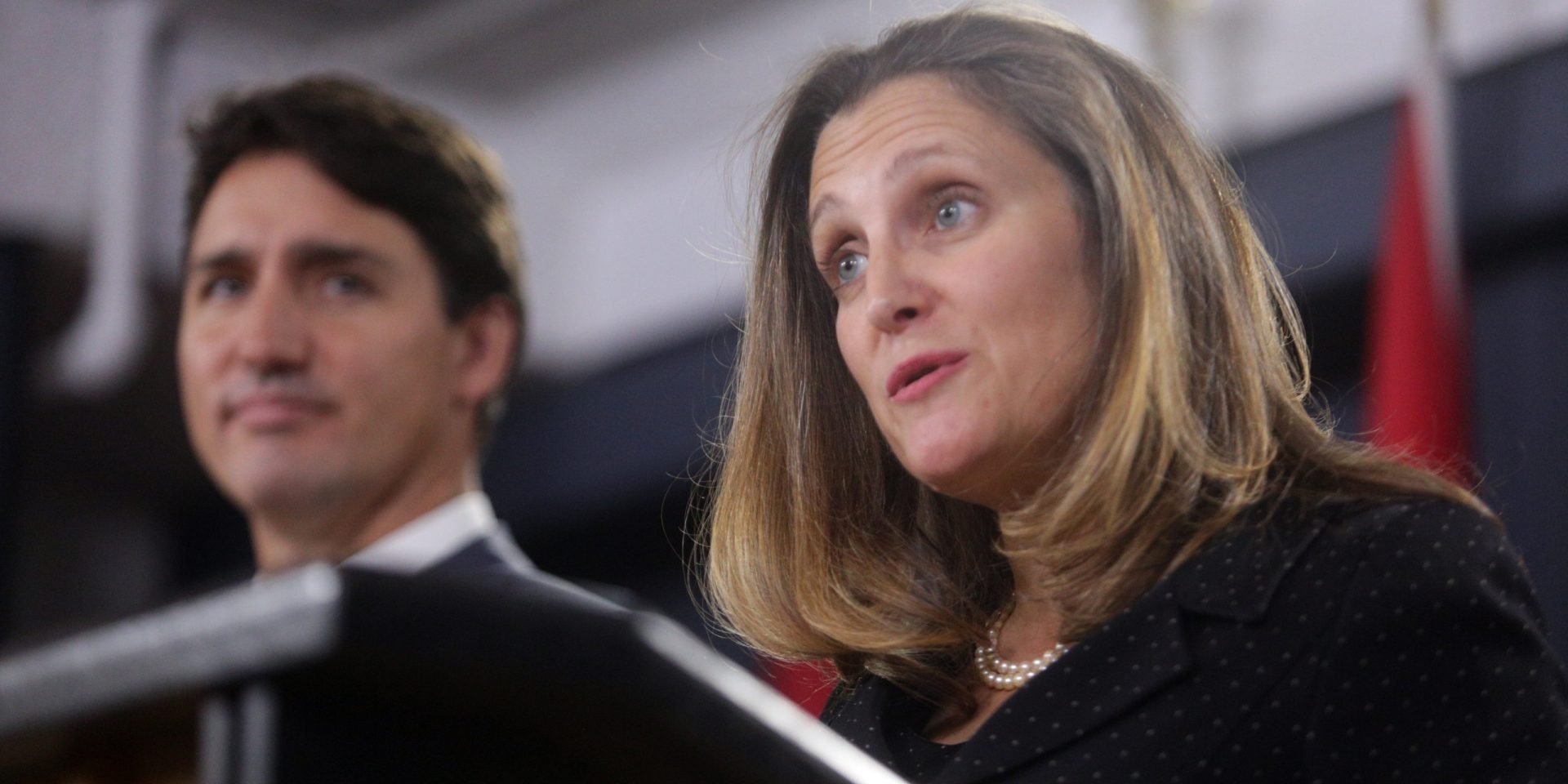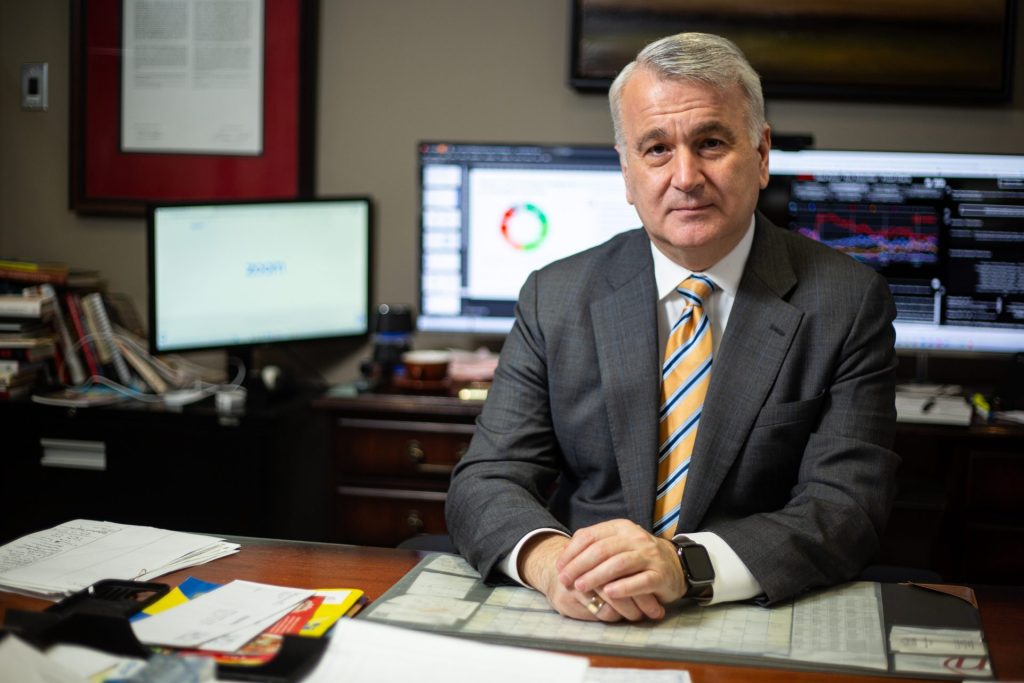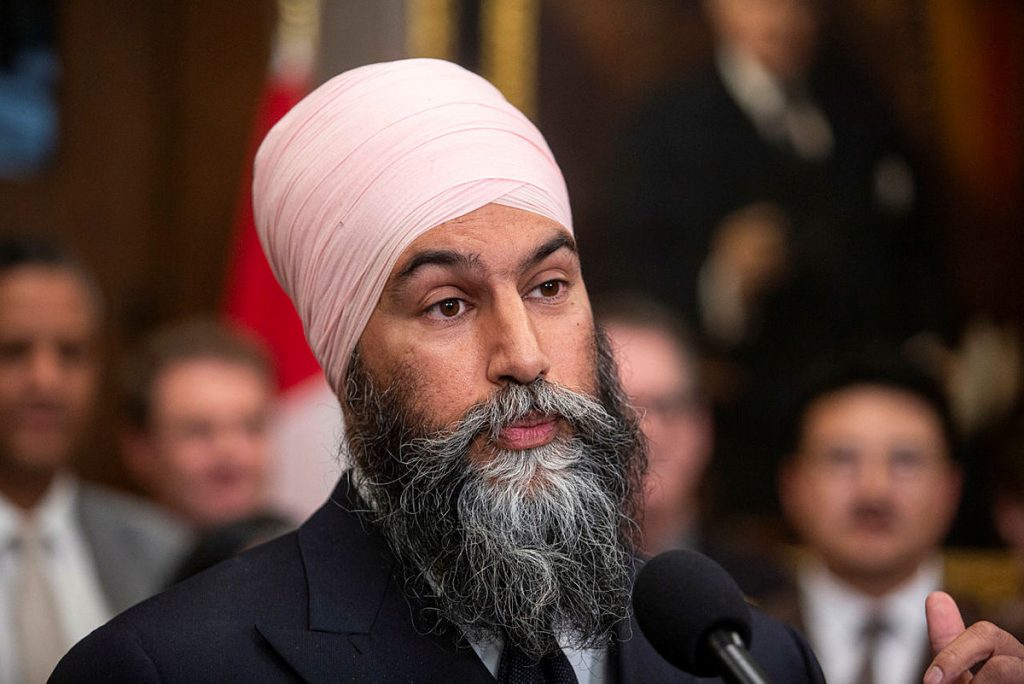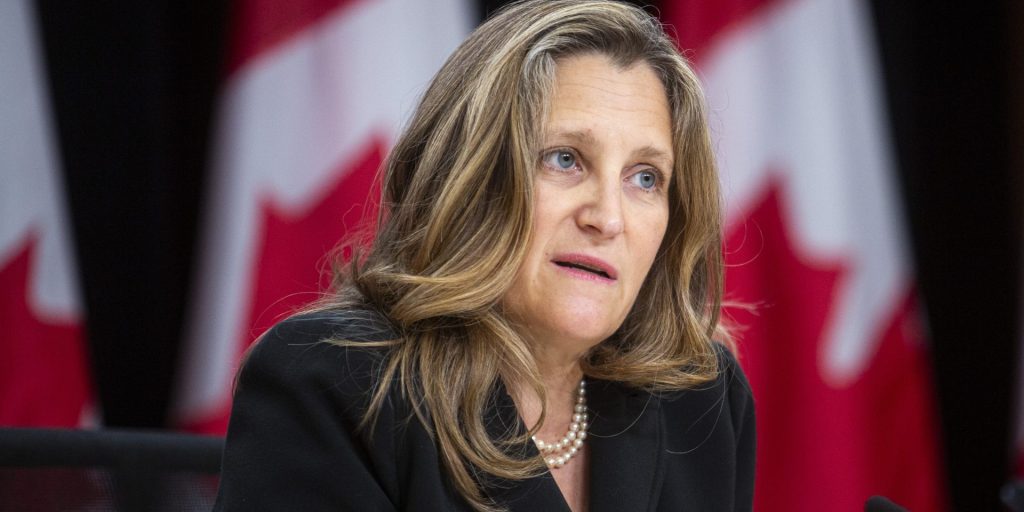‘On the fly’ tax policy may hurt Liberals more than it helps, say observers

The Liberals’ latest policy effort to inject new life into their moribund public opinion numbers—through rebate cheques and a GST break—appears “well-intentioned,” but “poorly executed,” says pollster Nik Nanos.
Canadians may welcome the cash, but Nanos said that doesn’t mean they will offer the Liberal government their votes in exchange.
“When Canadians are offered money, they will take it,” Nanos told The Hill Times. “But to assume that it is a transformative experience that makes people change their opinions about the government of the day is a stretch.”
On Nov. 21, Prime Minister Justin Trudeau (Papineau, Que.) announced that his Liberal government would provide Canadians with a two-month GST holiday on a select list of items from Dec. 14 to Feb. 14, and that it would send $250 cheques to approximately 18.7 million Canadians by early spring 2025. The money will go to Canadians who worked in 2023, earning up to $150,000 net income.

Nanos said this isn’t something that’s going to “move the numbers” for the Liberals, and instead may compound some problems because it “looks like it’s falling into the same category as many other Liberal initiatives: well-intentioned, poorly executed.”
The Liberals have faced a cluster of issues since rolling out the program. That’s included pushback from retirees unhappy to be left out of the rebate, criticisms from some business lobby groups saying the tax holiday’s implementation will be disruptive, discontent from two Atlantic premiers whose provincial sales taxes are harmonized with the federal one, and a series of unflattering headlines after Finance Minister Chrystia Freeland (University—Rosedale, Ont.) told reporters on Nov. 25 that the tax holiday was in response to a “vibecession.”
Former Liberal staffer Nick McRoberts, who is now a vice-president at Winston Wilmont, said it’s good there will be “more money in the pockets of Canadians,” but the policy must be assessed in its full context—including the impact on the federal deficit, and its potential to “escalate tensions” among dissatisfied business owners and seniors who do not qualify for a rebate cheque.
“I think that the political pain of this decision was not calculated,” said McRoberts.

Former Conservative staffer Fred DeLorey, who is now a partner at NorthStar Public Affairs, said the new policies will not likely help the government’s political fortunes because they do not appear “rooted in authenticity.”
“It’s not like this is a part of a plan that they’ve had,” said DeLorey.
The Ontario government—which also plans to send cheques to its residents in the new year—has been talking about lower taxes and opposing the federal carbon tax, said DeLorey, but news of the federal policy “came out of nowhere.”
The fact the Liberal policy won’t come into effect until 10 days before Christmas gives the sense it was “written on the back of the napkin” in an effort to “reverse their fortunes,” said DeLorey.
He added that Freeland’s remarks about a “vibecession” will hurt the party.
“Insulting Canadians by dismissing their economic struggles as just a vibe is not only out of touch, it’s a profoundly dumb strategy,” he said.
“When families are struggling to pay their bills, they don’t need politicians telling them everything is fine.”
Pollster David Coletto highlighted how what he calls “inflationitis” is driving down support for all incumbent governments. In the Nov. 23 post on X, he said overcoming the frustration tied to the phenomenon requires governments to “respond with empathy and transparency, acknowledging the real struggles people are facing.”
They must also deliver “a clear, sustained message that we can work together to rebuild a stable, fair economy,” wrote Coletto, and provide “a long-term plan to restore economic stability.”
Liberals can’t afford to ‘antagonize’ seniors: Nanos
The decision not to include non-working seniors in the rebate cheques has become a particular lightning rod, and now threatens the government’s ability to pass the legislation.
On. Nov. 27, the government announced it would split the program into two pieces of legislation so it could pass the time-sensitive GST break right away, which has the NDP’s support.

The government will also need support from at least one other political party to eventually legislate the rebate cheques. Both the NDP and Bloc Québécois are opposed to non-working seniors being excluded from the rebate, and the NDP has also called for Canandians with disabilities who do not have a working income to be included.
Several Liberal MPs—such as Wayne Long (Saint John—Rothesay, N.B.) and Chad Collins (Hamilton East—Stoney Creek, Ont.)—have also said they may vote against the measure if seniors are not included.
CBC News spoke with a number of seniors who said they felt “astonished,” “incensed,” and “left behind” by not being included in the program.
Nanos said it’s bad news for the Liberals to face trouble with that voting bloc, one of the few demographics where they have retained some support despite their dramatic drop in the polls.
“The last thing you want to do is antagonize senior citizens,” said Nanos. “They have the time to vote, and they have the inclination to vote.”
In a save-the-furniture campaign for the Liberals, hanging onto their few remaining bastions of support will be key. Nanos said it’s not a good trade off to aggravate a relatively friendly demographic with a policy that many not pull many disaffected voters back into the fold.
“The Liberals cannot afford to antagonize or lose any voters right now,” he said.

McRoberts said the government has taken many other actions to help seniors, such as implementing the dental care program and making changes to Old Age Security.
However, the former Liberal staffer said excluding seniors from rebates “continues this narrative” that the prime minister and his government are “disconnected” from ordinary Canadians.
Feds skipped ‘the decency of a head’s-up’: King
McRoberts said that same disconnect can be seen in the fallout affecting some Atlantic premiers.
For the five provinces where the sales tax is harmonized—Ontario, New Brunswick, Nova Scotia, Prince Edward Island, and Newfoundland and Labrador—the provincial portion of the tax will automatically be removed along with the federal portion.
That will cause one of two outcomes: those provinces will be without revenue they had planned on in their budgets; or, Ottawa will have to use federal tax dollars collected from residents across Canada to subsidize this larger tax break that is automatically triggered in these provinces.
Following the rollout, recently elected New Brunswick Liberal Premier Susan Holt called the announcement a “surprise” that could leave a $62-billion hole in her province’s budget. Prince Edward Island PC Premier Dennis King said he did not get a “consultation or even the decency of a head’s-up” about the policy which he expects will cost his province $12-million.
“To have to learn about this through the media is not, I would say, good intergovernmental relations,” said King in the Prince Edward Island legislature.
University of Calgary economist Trevor Tombe said Ottawa will be bound to ultimately pay out the difference, according to his reading of the tax co-ordination agreements between the federal and provincial governments.
The agreements state that if the federal government makes a change to the HST that reduces provincial revenues from the tax by more than one per cent in a calendar year, Ottawa must fully compensate the province for that loss—unless it obtained a written agreement with the province prior to making the change. Tombe said his calculations suggest this tax change will meet the one per cent threshold.

However, Freeland has not yet committed to providing this compensation. The Hill Times asked Freeland’s office if it is bound by the tax agreements to pay out the funds. Her office pointed to a Nov. 25 press conference where she was asked the same question.
In response, Freeland did not commit to compensation, or address whether she believes these agreements bind Ottawa to make the payout. Instead, she appeared to suggest all provinces should change their fiscal plans to fund a provincial sales tax holiday.
“We think this is a really good measure for Canadians from coast to coast to coast,” said Freeland. “Our hope is that as we talk more with premiers of provinces and territories, they will recognize that this is a good thing for the people who live in their province, and that they will join us in offering this relief.”
Nanos said a lack of advanced consultation projects an image that “calls into question the competence of the government.”
“We live in a federation,” said Nanos. “A federal government can’t usually impose its will, especially in a shared tax.”
He said that even for Canadians who are not experts in federalism or tax law, “they know that if you have a harmonized sales tax that includes a provincial component and a federal component, you actually need the buy-in of your provincial partner.”
‘That’s why we have a budget process’: Tombe
If Ottawa does end up on the hook for paying out the funds, Tombe estimates that will increase the tax holiday’s cost from $1.6-billion to about $3-billion.

That would bring the cost of the entire package, including the rebate cheques, to about $8-billion—assuming the rebate is not expanded to include other groups such as seniors.
Tombe said if the government is prepared to spend that sum of money—shrinking its fiscal room and eating into its debt-to-GDP ratio—it has “surely got to be able to come up with something better to spend it on than this.”
He noted the stakes are particularly high at a time when Canada will be “moving into a pretty risky set of economic circumstances” with the threat of tariffs and other tax policy changes from incoming United States president Donald Trump.
“It’s never a good idea to make tax policy on the fly, and this quite clearly is a policy that was decided upon very quickly,” said Tombe.
“Tax policy ought to take time. That’s why we have a budget process. And especially when we’re talking about a significant sum of public funds.”
Editor’s note: This story was updated on Nov. 28, 2024, to report that the Liberal government will split the program into two separate pieces of legislation, with the time-sensitive GST measure set to move ahead first.
icampbell@hilltimes.com
The Hill Times






 LICENSING
LICENSING PODCAST
PODCAST ALERTS
ALERTS













